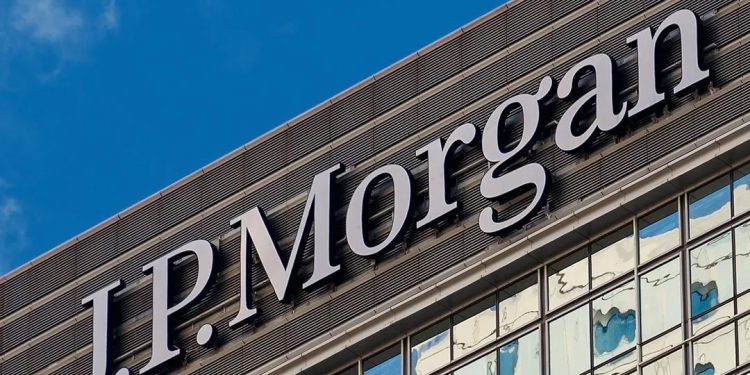JP Morgan, the renowned American multinational financial services firm, has expressed optimism regarding the Nigerian currency, projecting an appreciation of the naira and settling at N600 against the dollar in the coming months. The firm’s positive outlook was revealed in a statement released on Thursday, indicating confidence in Nigeria’s economic prospects.
Following the Central Bank of Nigeria’s recent announcement of the unification of all foreign exchange (FX) market segments, signaling a shift towards a market-driven exchange rate. This policy change came after President Bolu Tinubu emphasized the need to revamp monetary policy and harmonize foreign exchange rates in the country. The move aims to improve market efficiency and provide a more balanced approach to currency volatility.
Following the announcement by the Central Bank of Nigeria, trading activity has seen the naira trading between N750 and N755 per dollar before appreciating to close at N664.04. JP Morgan’s analysts acknowledged the challenges posed by currency volatility and emphasized the importance of a balanced approach. While a flexible exchange rate regime can absorb shocks and enhance market efficiency, careful management and policy coordination are essential to prevent excessive currency depreciation or volatility.
JP Morgan’s statement indicates that they expect an initial overshoot towards the parallel market rate of below 750 or higher for the USD/NGN spot, with eventual stabilization in the high 600s over the coming months. . “While it will take a few days for USD/NGN spot to settle, we fully expect an initial overshoot towards the parallel market rate of N750 or higher, after which, we expect USD/NGN to settle in the high 600s over [the] coming months,” the statement reads.
“We remain long USD/NGN via non-deliverable forwards (NDFs) as well as emerging markets bond index global diversified (EMBIGD) index as we expect further positive catalysts to materialize in the near-term.
“We believe there is room for incremental positive surprises with respect to reform depth and execution speed. We had high expectations for the new administration’s reform agenda, however, the speed of execution has proven to be a positive surprise.”
The firm remains optimistic about the prospects, maintaining long positions in non-deliverable forwards (NDFs) on the U.S. dollar-Nigerian naira and the emerging markets bond index global diversified (EMBIGD) index. They anticipate further positive catalysts in the near future, particularly with respect to the depth and speed of reforms under the new administration.
Additionally, JP Morgan highlights the recent surge in fuel prices and its potential impact on inflation. They suggest that headline inflation could rise from 22.41 percent in May 2023 to around 25 percent in June 2023. However, the firm points out that removing fuel subsidies would have a positive effect on Nigeria’s fiscal accounts. It is expected that some of the savings from subsidy removal will be directed towards social spending, which could further stimulate economic growth.
JP Morgan also emphasizes that a weaker exchange rate will result in higher naira revenues from oil and gas exports, benefiting the government. They further note that the devaluation of the naira is unlikely to have a significant impact on headline inflation due to a substantial portion of the informal economy accessing dollars at the higher parallel market rate.
The positive outlook from JP Morgan reflects growing confidence in Nigeria’s economic reforms and the speed of their execution. With the potential for naira appreciation and ongoing reform efforts, Nigeria continues to attract attention from global financial institutions, indicating positive prospects for the nation’s economic growth and stability.
JP Morgan’s projection of naira appreciation and its positive stance on the Nigerian economy present encouraging signs for investors and policymakers alike. It highlights the importance of effective policy coordination, continued reforms, and prudent management of currency volatility to sustain economic progress in Nigeria.









